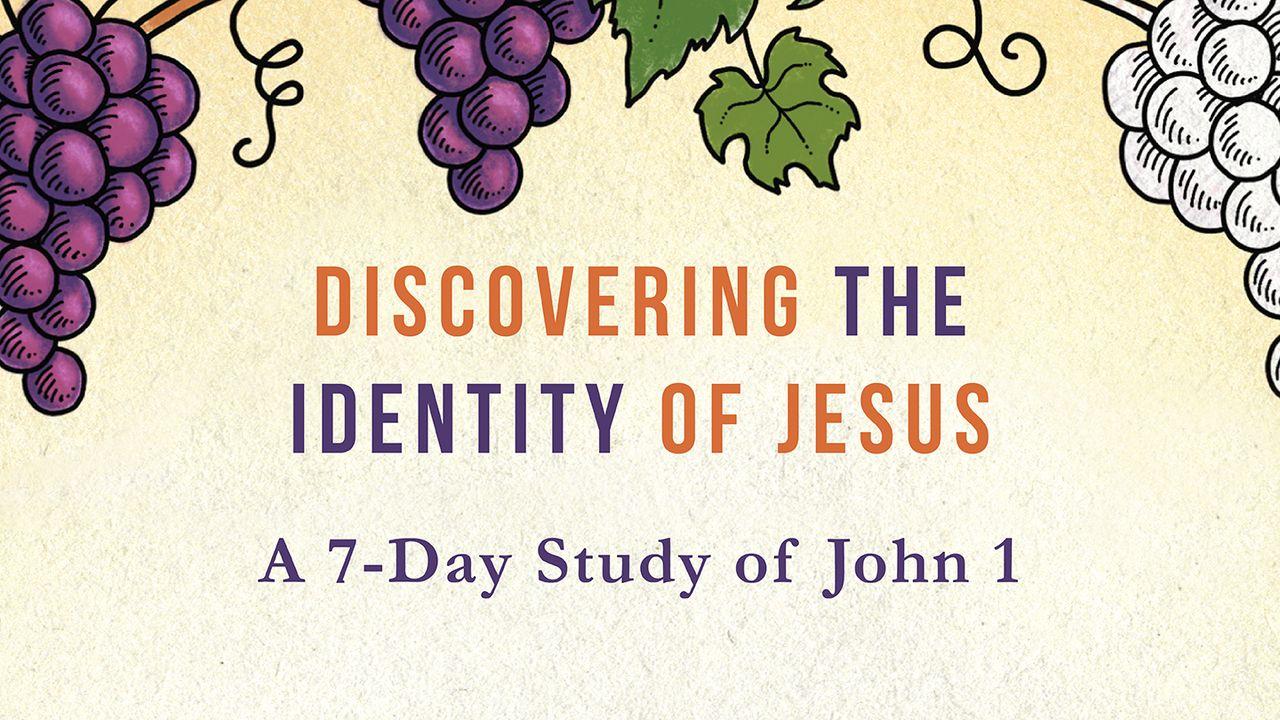Discovering the Identity of JesusՕրինակ

Today’s reading is packed with theological significance. First, it tells us that “the Word became flesh.” That is, God’s expression of himself took on human flesh. This is what we call the incarnation.
Second, the Word “dwelt among us.” The words translated “dwelt among us” are more literally “pitched his tabernacle.” Ages before at God’s direction, the prophet Moses built a tabernacle (tent) as a place where God could dwell among his people in a special way. Now the Word has come in a tent of flesh to dwell among people.
Third, eyewitnesses such as the Apostle John saw the Word’s glory. This reminds readers familiar with the Old Testament that when Moses dedicated the tabernacle, God’s glory shone in a cloud that filled it (Exodus 40:35). Just as God’s glory was visible in the tabernacle, so God’s glory was visible in the Word.
Fourth, John declares the Word is the Father’s Son, Jesus Christ. “Jesus” identifies the person. “Christ” is a title that comes from the Greek for “Anointed One” (“Messiah” comes from the Hebrew for “Anointed One”). This is a title that King David and all the kings descended from him held. By giving Jesus this title, John proclaims that Jesus is the long-awaited King whom the prophets promised would come to rule forever.
Fifth, while Moses brought God’s commands, Jesus brings grace and truth. Through Moses, God showed that sin separates people from God and brings death. But Jesus brings grace—unmerited favor, favor that cannot be earned. Grace is not getting deserved punishment. Moreover, Jesus speaks only truth.
Sixth, Jesus made God known through the incarnation; that is, through being born in human form.
_____
How important is it to you to receive God’s grace and to grant grace to others?
Սուրբ Գրություն
Այս Ծրագրի Մասին

Discover what John’s Gospel reveals about Jesus’s identity. Find out why the religious leaders asked John the Baptist if he was the Christ, Elijah, or the Prophet. See what the titles “Lamb of God” and “Christ” mean and why they seemed at odds with each other. Discover why Jesus calls himself “Son of Man.” In this plan, Jean E. Jones walks you through the revelations of John 1.
More
Հարակից ծրագրեր

Աղոթք Հայաստանի և հայ ժողովրդի համար

Սուրբ ծննդյան նվերներ Էջմիածնի Էմմանուել եկեղեցուց

Աստծու բարությունը մեղրից էլ քաղցր է

Քո անհուսության բժշկությունը

Աստծու արդարությունը մեր ապահովությունն է

Դու նրանց հույսն ես․․․

Զրույց «Քո հրաշքն՝ ամեն օր»-ի ընթերցողի հետ

Տեր Աստծու շնորհը մեր մեծագույն օգնությունն է

Աստծու սիրո խորհրդանիշը
